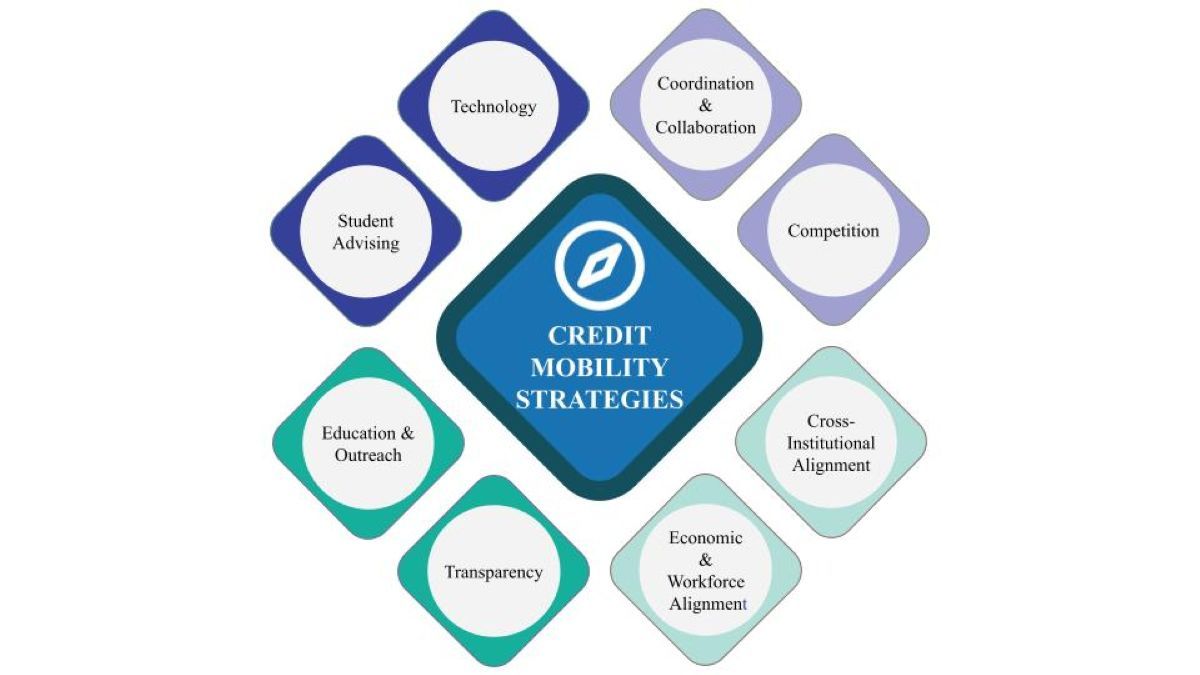Holistic Credit Mobility Acceleration Cohort Kicks Off
Takeaways from the Community of Practice
Last month, Ithaka S+R and Complete College America officially launched the holistic credit mobility acceleration cohort. Over the coming year, the 11 state higher education and university systems and institutional consortia that comprise the community of practice will convene regularly to develop a unified language around credit mobility, identify best practices, policies, and technologies, and collaborate to move the needle on credit mobility around the nation.
The kickoff meeting formally introduced cohort participants and set forth a vision for the year-long engagement to come. Featuring welcoming remarks from Ithaka S+R’s Martin Kurzweil and Complete College America’s Charles Ansell, the meeting afforded the opportunity to set expectations for participation, outline the scope of engagement and our current knowledge base on successful credit mobility initiatives, and gain a deeper understanding of the objectives and key results cohort participants will aggressively pursue.
The meeting also afforded the opportunity to present key takeaways and thematic findings from our recently-released report: Holistic Credit Mobility Strategies in Action: A Case Study Report on State, System, and Institutional Efforts to Smooth the Path to a College Degree for Mobile Students. Betsy Mueller, Emily Tichenor, and I presented on the key research questions underlying the case studies, how they are positioned within Ithaka S+R’s broader credit mobility work, thematic findings from the qualitative interviews we conducted, and what these new findings suggest for the holistic credit mobility framework. The key takeaways from the case studies–transfer-tech optimism, fostering institutional and faculty trust, coordination and collaboration, and economic and workforce alignment–dovetail with the core foci of the acceleration cohort members. The diagram below showcases the core themes that emerged from our analysis.

This first convening accomplished more than just setting the stage: participants got right to work. During the meeting, participants collaboratively workshopped their goals, sparking dialogue and opportunities for collaboration with like-focused counterparts. Participant goals encompass a wide array of initiatives, such as developing technologies, building networks between institutions, evaluating state- or system-wide policies, establishing pilot programs, reimagining transfer data collection and metrics, strengthening faculty relationships, and analyzing credit mobility data. Overwhelmingly, the goals expressed are ambitious and hold great potential to build the necessary structures and supports mobile learners need to receive credit for accomplished learning and maximize their potential. We are eager to support and advise cohort members as they tackle these goals.
Looking ahead to the coming months, we also presented participants with the learning agenda that will guide our engagement. Key thematic learning areas include: technology and data sharing; non-credit-to-credit pathways and prior learning assessment; cross-sector strategic collaboration and partnerships; communication strategies for stakeholders; and, integrating efforts holistically and sustainability planning.
The community of practice will culminate in an in-person retreat, where we will report on progress and share action plans for shaping credit mobility policies, practices, and technologies going forward.
This blog post is the first in a series elaborating on the work underway at Ithaka S+R to serve mobile students across the nation. Our next installment will reflect on the technology and data sharing credit mobility acceleration cohort convening.